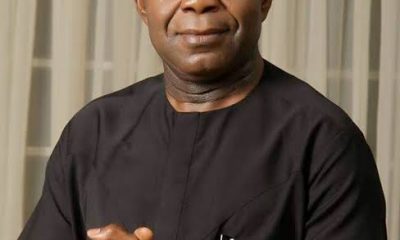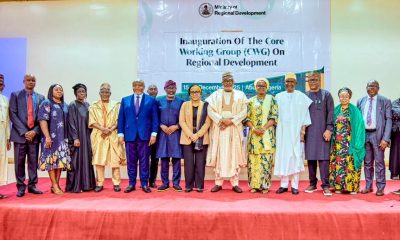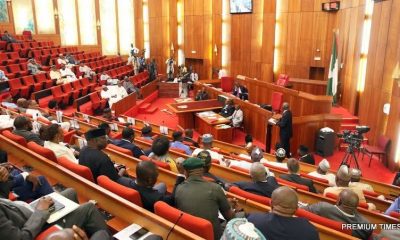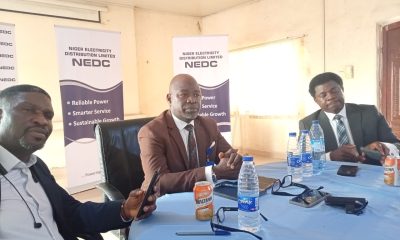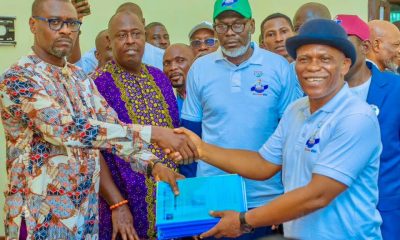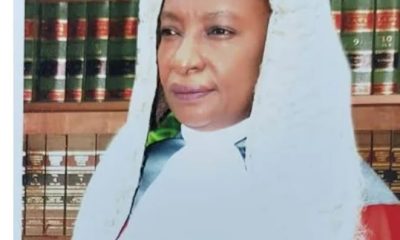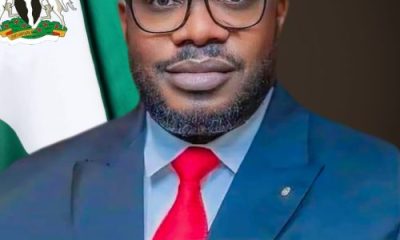Sports
AKASSA’s Enduring Contribution to National Sports Development
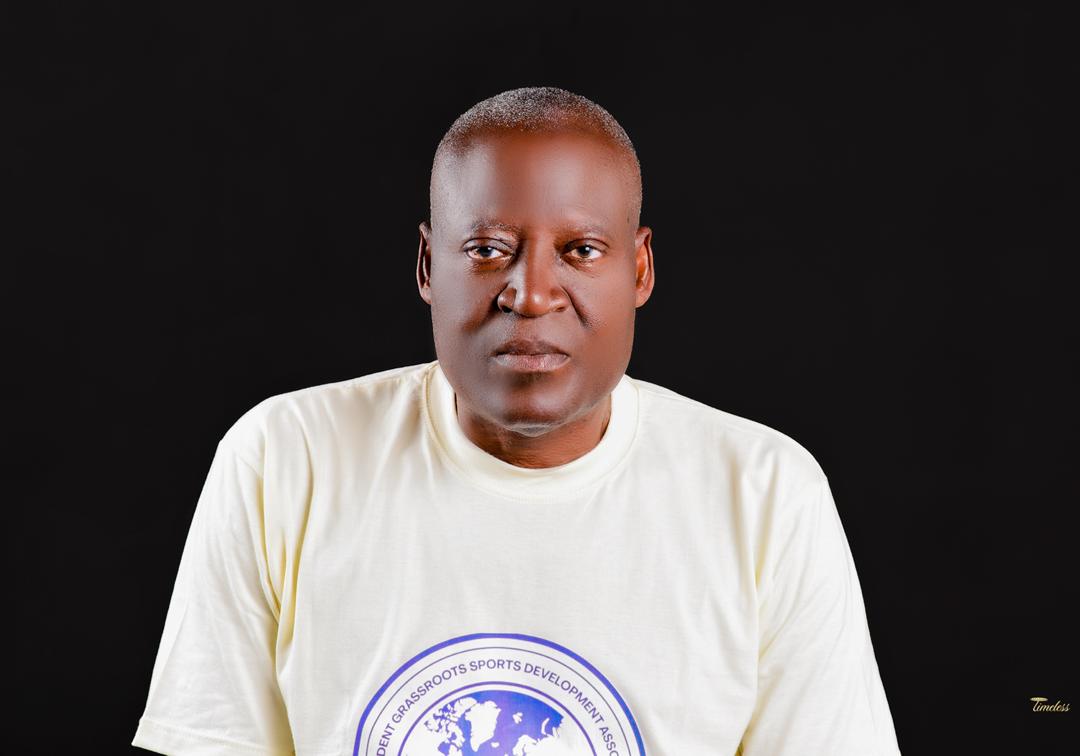
By Dave Ikiedei Asei
In the aftermath of the Nigerian Civil War, the AKASSA clan played a transformative role in rebuilding the country’s social fabric through sports. The conflict had scattered youths across various communities, but the resurgence of sports provided a vital platform for reconciliation, unity, and social reintegration. Sports became more than recreation—it evolved into a vehicle for healing, bonding, and national cohesion.
Recognizing this unifying potential, the federal government introduced key initiatives aimed at rehabilitation and social harmony. These included the National Festival of Arts and Culture (NIFEST), the National Sports Festival, National School Sports Competitions, the Principal’s Cup, Youth Sports Federation of Nigeria (YSFON) tournaments, and the Shell Cup. These platforms laid the groundwork for both grassroots and elite sports development in Nigeria.
The post-war period also marked a strategic investment in regional sporting infrastructure. The construction of stadiums and sports facilities across geopolitical zones boosted competitive sports and gave birth to formidable regional teams such as Spartans of Owerri, Enugu Rangers, Racket Rovers, Redevils of Rivers State, and Stationery Stores of Lagos. These clubs became breeding grounds for talent and incubators of national pride.
The 1972 FESTAC Games stood as a cultural and athletic milestone. Communities from across the nation, including AKASSA, participated robustly. The AKASSA clan distinguished itself by contributing athletes and coaches who represented their region with excellence, inspiring further engagement with sports across the Niger Delta.
In line with the national revival, AKASSA communities responded by establishing local football clubs that would significantly impact regional sports. Notable among them were Redevils FC, Atlantic Ocean FC, and Atlantic Waves FC—founded by Hezekiah Ikio of the Apparabie community. From the 1970s through the late 1990s, these clubs flourished in Brass, Nembe, and Igbomotoru in the Southern Ijaw Local Government Area, nurturing a new generation of athletic talent.
Prominent athletes who emerged from this era included Hon. Ebieri Jones, Tom Febo (a teammate of national legend Friday Okoh of the Green Eagles), Living Appreye (a.k.a. Dombraye and the first major discovery of late Coach Sinclair), and Felix Bokouru, discovered through school competitions. Additional notable figures such as George Ikelemo—who played under the esteemed Coach Taiwo Ogunjobi at Julius Berger Ajaokuta—also rose to prominence. The list continues with Brantein Dordor, Itari Dordor, Perry Kombo Dadigi, and the late Bob Wendi Digitemie.
The AKASSA clan’s impact on Nigerian sports extends far beyond the football field. The community produced swimming champions like Gentle Ofoin, a medalist at both the Commonwealth and Olympic Games, and Maria Jonah, a former national swimming titleholder. Their achievements placed AKASSA on the global sports map.
Ogrija Ogrija, a war veteran and revered swimming coach stationed at the Isaka Sports Institute, was instrumental in nurturing swimming talent in Bayelsa State. His influence in aquatic sports development remains unmatched.
In the discipline of weightlifting, John Bull Bussa from Sángana made a significant mark. His accomplishments advanced the sport in Bayelsa and laid a foundation for future athletes. Similarly, Friday Okoh transitioned from a brilliant playing career with the Green Eagles to coaching and eventually served as a director in the defunct Rivers State Sports Council.
There has been neglect of pioneers and ,hence there is urgent need for recognition
Despite their substantial contributions, many of these AKASSA sports icons passed on without the honors they rightfully deserved. Neither the Bayelsa State Sports Council nor its predecessor in Rivers State, nor even the National Sports Commission, has adequately recognized these trailblazers. This neglect has ignited public outcry and a growing movement to reevaluate how Nigeria commemorates its sports pioneers and accord the recognition due them.
Hon. Uroh Kiani, a member of the planning committee celebrating the 50 years of grassroots sports development spearheaded by Chief (Amb.) Ogunu Miebi Samson, has called for a cultural shift. He denounced the prevailing trend of posthumous recognition, advocating instead for the celebration of sports heroes during their lifetimes.
Celebrating CHF (Amb.) Ogunu Miebi Samson’s Lifelong Impact
One of the most notable figures in Bayelsa’s grassroots sports development is chief (Amb.) Ogunu Miebi Samson from the Apparabie community in Brass LGA. For over five decades, he has committed his life to identifying and nurturing sports talent at the grassroots level. His mentorship has shaped the lives of countless youths and contributed significantly to Nigeria’s sporting advancement.
In recognition of his dedication, the celebration planning committee is rallying support from government institutions, corporate bodies, and well-meaning individuals to honor CHF Ogunu. This celebration aims not only to acknowledge his lifetime achievements but also to establish a precedent for how Nigeria values and uplifts those who serve the nation through sports.
A Clarion Call to the Nation
The story of AKASSA’s indelible impact on Nigerian sports is a compelling testament to the transformative power of grassroots engagement. From producing elite athletes and legendary coaches to serving as a model of post-conflict reintegration, AKASSA has consistently demonstrated that talent knows no geographic bounds.
It is time for both state and federal authorities to institutionalize the celebration of living sports legends. The planned recognition of CHF Ogunu Miebi Samson should mark the beginning of a broader movement—one that appreciates contributions in real time and inspires the next generation of athletes to dream, compete, and lead.
AKASSA’s Historical Significance
Historically, AKASSA has long held strategic national relevance. Between 1871 and 1890, it served as a prominent British post. The community hosted customs operations and functioned as a key node for the Royal Navy, the Marine Ports Authority (now NPA), and Inland Waterways before operations were relocated to Lagos. Its historical legacy, combined with its contributions to Nigeria’s sporting evolution, cements AKASSA’s status as a community of enduring national significance.
Sports
Two FC Barcelona Officials Who Can Revolutionize Bayelsa Football Talents
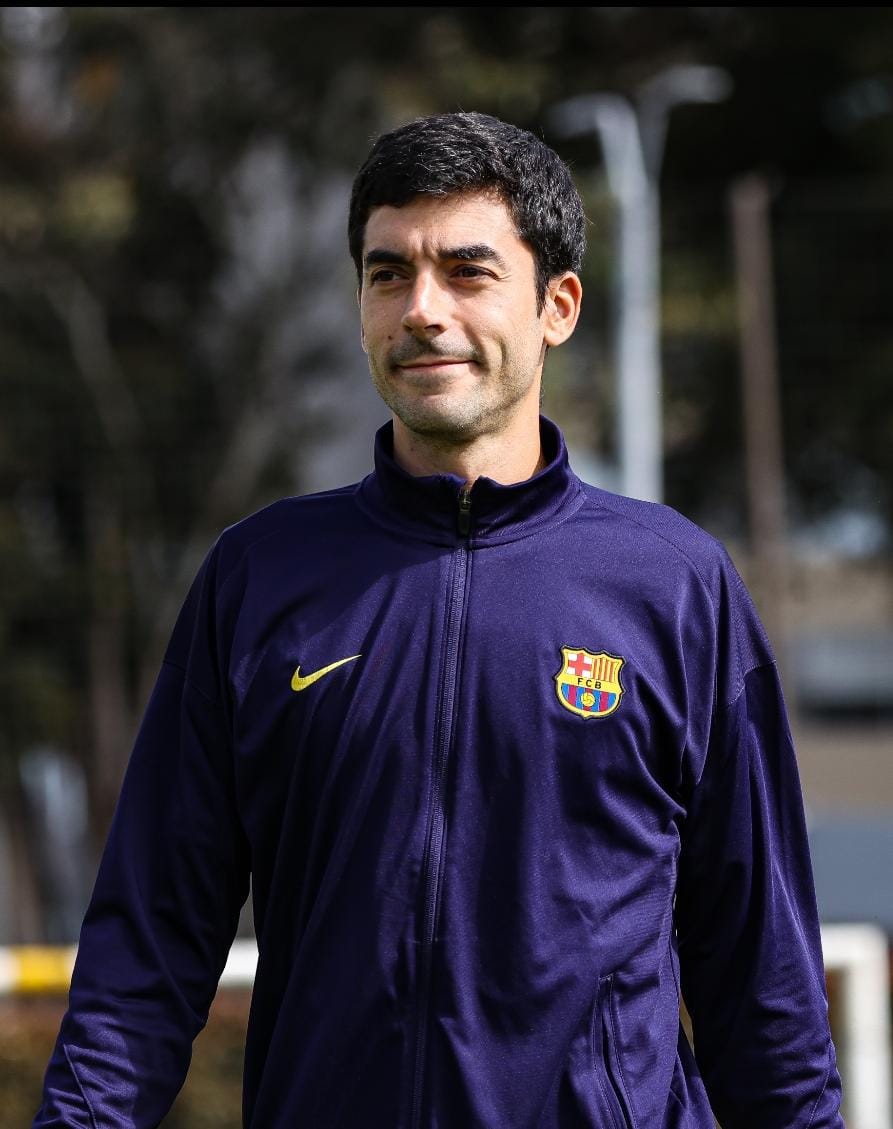
By David Owei
As Football Club Barcelona prepares to activate their International Advisory role with the Bayelsa Governor’s Football Tournament, two key technical staff who will be central to the partnership are Bernat Villa Gorriz and Alberto Lafuente Rincón.

Bernat Villa Gorriz is an experienced football coach, technical director, and football development specialist. He has over 15 years professional experience in elite player development, coaching education, and international football projects.
With a degree in Industrial Engineering and the UEFA-A Coaching License, combining strong analytical skills with high-level coaching expertise, Gorriz began his coaching career in Catalonia, working with well-known clubs such as youth-focused CF Damm, Atlètic Sant Just FC, and Sant Cugat FC.
From these experiences, he built a solid foundation in youth development and competitive football.
In 2013, he joined FC Barcelona as a coach at the Barça Academy, contributing to the development of young talents through the club’s renowned training methodology. In 2016, he was appointed Technical Director of the Barça Academy Lagos (Nigeria), leading the sporting structure, coach education programmes, and player development strategy.
Three years later, in 2019, Gorriz became the Technical Director of Barça Academy for the Americas region, overseeing multiple academies and implementing FC Barcelona’s training standards across the continent.
In 2023, he was assigned as Technical Director of Barça Academy for the regions of America, Europe & Africa, managing large-scale international projects, coach education systems, and strategic development plans.
In 2024, Gorriz was appointed Technical Director of Barça Academy for the regions of Europe & Africa, as well as Project Manager for Africa within the FC Barcelona Scouting Department, leading talent identification strategies and long-term development projects across the continent.
On his part, Alberto Lafuente Rincón is a senior football executive and technical leader with over 10 years of international experience in elite player development, coach education, and the strategic management of high-performance football projects.
Armed with a degree in Sports Science and the UEFA-B Coaching License, he combines a strong analytical background with executive-level expertise in football methodology, talent development systems, and organizational leadership.
Lafuente Rincón began his professional career in Spain, working within established club structures such as CD Numancia, where he developed a solid understanding of youth academies, competitive environments, and long-term performance models.
In 2018, he joined Barça Academy in Lagos, contributing to the implementation of FC Barcelona’s global methodology in Nigeria and supporting the development of elite youth talent within an international framework.
A year later in 2019, he was appointed Technical Director of Barça Academy Pune (India), assuming full responsibility of the academy’s sporting strategy.
His role included designing and leading the technical structure, overseeing coach education programmes, and aligning player development processes with FC Barcelona’s global standards.
From 2019 to 2025, Lafuente Rincón has been appointed as Technical Director across multiple international Barça Academy projects, including Dubai, the United States, and Japan, ensuring technical coherence, methodological consistency, and operational excellence across diverse football markets.
In parallel, he has acted as Global Camp Coordinator, leading Barça Academy camps worldwide (Taiwan, Australia, Argentina, Colombia), delivering standardized coach education frameworks and strategic development plans aimed at sustainable, long-term football growth.
For Bayelsa State and her talented young footballers and coaches, these high profile officials from FC Barcelona of Spain may just be the trigger of dreams realized.
Sports
Abia Angels beats Bayelsa Queens In Yenagoa
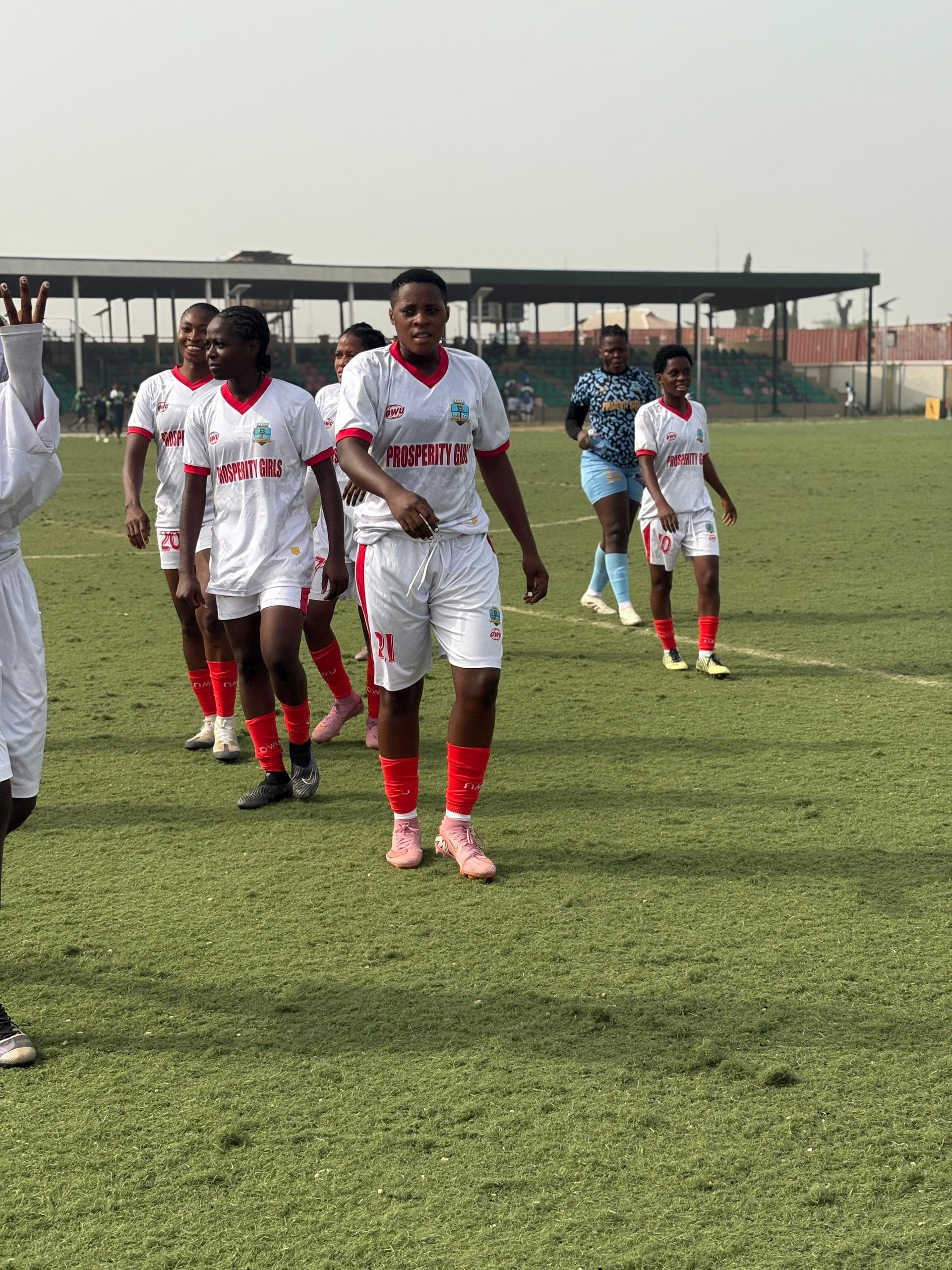
By David Owei,Bayelsa
Bayelsa Queens FC suffered a 2-3 loss to Abia Angels in a friendly game on Saturday at the Samson Siasia Stadium.
Bayelsa Queens took the lead in just 2 minutes from a free kick and Wuraola made no mistake to slot it in.
It was a blow for the Prosperity Girls who dominated the first half, but capitulated in the dying minutes and the visitors levelled the score through Yemilo Blessing to end the first half 1-1.
The visitors scored a second goal in resumption of the second half through Dakachi Ekezie and Chimezie Ekezie scored the third goal for Abia Angels before Bankole Sofiat pulled one back for Bayelsa Queens to end the friendly encounter 2-3.
Bayelsa Queens failed to build on the early goal they scored, producing a lackluster performance.
Abia Angels showed greater composure and silenced the home fans, handing them a victory.
Technical Adviser of Bayelsa Queens Whyte Ogbonda said he was pleased with the performance of his girls.
“Yes, I’m satisfied with the standard of play, we created lots of chances, but sometimes in football you have your off-days”.
“This is just a friendly match, we will now go back and plug all the loop holes before the league resumes on the 18 of February, 2026”, Coach Whyte Ogbonda added.
Sports
NDDC Completes Facilities Upgrade in Benin for 2nd Niger Delta Games
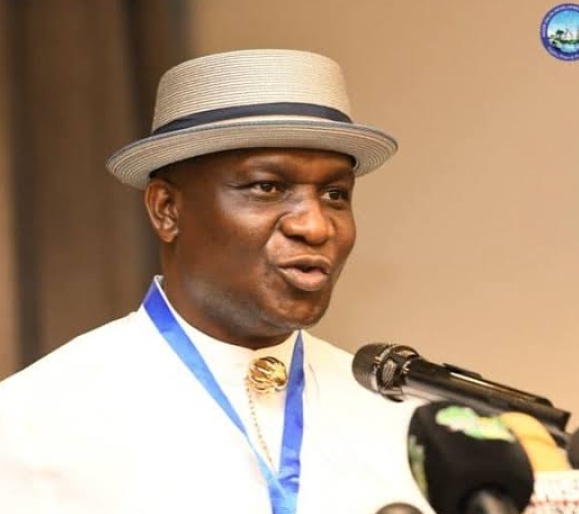
By David Owei ,Bayelsa
Edo State is already reaping the benefits of hosting the 2nd edition of the Niger Delta Games as the organisers have completed significant upgrades on the sporting facilities earmarked for the competition
Just as was done in Uyo, Akwa Ibom State, prior to the start of the 1st edition, the organisers and the sponsor, Niger Delta Development Commission(NDDC) have kept the promise of improving facilities in host states.
Considerable 8 work is ongoing at the 50 meter long and 20 feet deep Olympic standard swimming pool at the Samuel Ogbemudia Stadum and also at the tennis courts beside the main arena
“Your Excellency, let me offer you the assurance that as part of our NDDC Completes Facilities Upgrade in Benin for 2nd Niger Delta Games
for the Games will be upgraded to meet international standards,” Dr. Samuel Ogbuku had said to Governor Monday Okpebholo during the unveiling of the state as hosts of the Games on December 4.
The assurance was again restated by Sir Itiako Ikpokpo, the Chairman of Dunamis-Icon Limited, organizers of the games during a recent inspection tour of the facilities.
“We have carried out the assessment of the facilities that will host the competitions, and in a few weeks, there will be a major transformation of those that have deteriorated.
“It is a legacy that the games bring to host states,” Ikpokpo told journalists at the end of the inspection.
Other renovated facilities include the twin volleyball and basketball courts at the Wire Road Sports Centre, which have been provided dressing rooms and conveniences.
Abia, Akwa Ibom, Bayelsa, Cross River, and Delta States are among the nine members of the regional bloc. Others are Edo, Imo, Ondo, and Rivers.
Over 3000 athletes and 500 coaches will be participating in the games for 16 sports. The games will be held from February 20-27.
-

 Politics6 months ago
Politics6 months agoASUU-NDU protest against FG loans, unpaid salaries,Non-Implementation of agreements …..says loans is generational slavery
-

 Politics9 months ago
Politics9 months agoGov Okpebholo moves to end Cultism *Threatens action against leading cult groups *Vows to demolish more cult houses in Edo State
-

 Business & Economy6 months ago
Business & Economy6 months agoPC-NCG Issues Disclaimer on Purported Nigerian Coast Guard National Orientation Exercise In Anambra State
-

 Entertainment2 years ago
Entertainment2 years agoJubilation galore as Parishioners of CKC Kurudu celebrate their cultural heritage ….FG should exploit our Cultural heritage to unite Nigerians-Rev Fr Dim
-

 General News2 years ago
General News2 years agoReps hold public hearing on FMC Ugwuaji Awkunanaw
-

 General News2 years ago
General News2 years agoCelebration galore as UDA Successfully Elected New Exco ……I will digitalize processes that will raise UDA to greater height -Comr. Okejiri
-

 Law & Crime8 months ago
Law & Crime8 months agoICPC pledges to collaborate with FIDA to end Sex for Marks in tertiary institutions
-

 Law & Crime7 months ago
Law & Crime7 months agoLegal practitioner raises alarm over threat to his life by CSP Muhammed Abdulkareem

